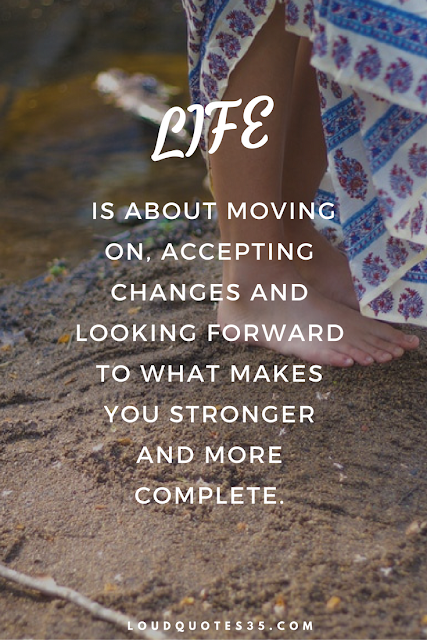When I grew up, I learned something precious, I learned that the more you know about yourself and about your life, the easier your life will get. Therefore, I always make sure I learn as much as I can, mostly from books because you can’t experience everything and books are a great way to learn as if you were experienced, even much better than being experienced. I can’t say that now I’m applying all that I learned, I’m trying yeah, but one can’t apply everything he learns, even though, I like to share it so maybe someone else out there will apply some of it. The good that you can’t benefit from it fully, share it so that someone else might benefit from it, and right then, that good can’t be used any better. The lessons below are mainly from self-help books such as “Change your thoughts-Change your life” for “Dr. Wayne W. Dyer” and “Would/Coulda/Shoulda” for “Dr. Arthur Freeman” and “Rose DeWolf”
30 Priceless Lessons Self-Help Books Taught Me (Part II)
1- Practice knowing when to stop. Alert yourself to recognizing when it’s good time to stop demanding, chasing, talking, walking, working, sleeping, playing, shopping, complaining, striving, and so on. By practicing cessation, you’ll move into prioritizing what’s important in your life in that moment.
2- See imperfections as perfect. Become aware of your conditioned responses that lead you to label people, places, and circumstances as less than perfect. Recognize yourself first and foremost as a creation of God, which is your perfection. It has nothing to do with how you look or any so called mistakes or failures you may have attracted to yourself, even though these superficialities will continue throughout your entire life.
3- See the value of subtraction or ‘daily diminishing’. Begin to consciously decrease your need to purchase more things. Keep in mind that the advertising world is designed to convince you that your happiness is tied to whatever it’s promoting. So instead of buying more, see how many of your accumulated possessions you can recirculate.
4- You came here with ‘no-thing’ and you leave with ‘no-thing’, so take great pleasure in all that has arrived in your life. There’s even greater pleasure to be had in knowing that your ability to live peacefully and happily isn’t dependent on how much stuff you add to your life.
5- Begin to see yourself as a person who notices instead of judges. Avoid taking one position and sticking to it no matter what the circumstances are; rather be in harmony with all people, especially those whose opinions conflict with yours.
6- Realize how much your life matters. Live your life knowing that the difference you choose to make is toward wholeness, not destructiveness.
7- Talking to convince others actually says more about your need to be right than their need to hear what you have to say. So rather than trying to persuade others, keep quiet.
8- Practice the art of allowing yourself. Begin by letting yourself be more spontaneous and less regimented in your daily life. Tell the authoritarian part of you to take a break by affirming: ‘I am free to be myself. I do not have to live by anyone else’s rules, and I release the need for laws to regulate my behavior.
9- Practice the art of allowing others. Everyone has a strong sense of what they want to do, what limits they have, and how to actualize their dreams. Allow others and enjoy how your nonauthoritarian leadership inspires them to be themselves.
10- Change the way you look at your life by moderating your ego. See yourself as a being who gives rather than collect, and live on what you need rather than practicing conspicuous consumption.
11- Look for the simplicity in what you call complicated by seeing that in this moment. Look at what you have and realize that you’re obviously fine in this moment. You have no problem, though you think you have. To believe that you need what you don’t have in insane and to believe that you can’t be content and happy now because your future appears to you to be difficult is another form of insanity.
12- Think small. Change your notion of “thinking big” to “thinking small and getting big things done”. Examine whatever it is that seems so enormous that it terrifies you to start. Then shift your thinking to see what can be done today in your precious present moments, completely ignoring the overall picture. Your accomplishments will magnify into greatness when you undertake the small, by doing so, you’ll paradoxically see huge results.
13- A journey of a thousand miles begins with a single step. Forget about the end result; when you arrive where you thought you wanted to be, you’ll just begin a new journey. So enjoy each step along the way and keep in mind that every goal is possible from here. Just do one thing, one day at a time.
14- Never assume that you know what’s best, even if you’re older, wiser, and richer than others and have more influence and power than they do. Instead stay low, speak softly and remain humble; and let others be in control of their lives as much as humanly possible.
15- Remain a servant. See yourself as someone who’s on this planet to assist others. Look for opportunities to be of aid.
16- Practice seeing yourself in everyone else. If someone you love is hurting, you experience their pain. Therefore, whenever you say or do something that’s harmful to someone you love, you’re doing something to harm yourself.
17- Refuse to think of anyone as your adversary. Affirm: “I have no enemies. There are people with whom I have strong disagreements. I may even be required to defend myself and my way of life, but I will not think of them as adversaries”. Without an enemy, you will surely triumph.
18- Focus on loving the life you have now in the body you’ve got. Affirm:”My body is perfect, born at precisely the right time, and this is the perfect age now. I accept myself as I am. I accept my role in the perfection of this universe at this time”.
19- Don’t see caution as a weakness or as an expression of fear. Bravery is a fine quality, but reckless bravery, that is where you rush in without thinking, is a sure way to invite disaster.Think before you act, very often your first impulse is dominated by your ego’s need to win and conquer.
20- Be an active listener rather than attempting to control others by speaking frequently and loudly. Many of the answers you seek and the results you expect from others will surface if you can remember not to speak or even ask.
21- Be strong by bending. Be willing to be like palm trees who bend in the midst of hurricane-force winds so that they won’t break. The same is true for the way you relate to others, so listen more, allow your viewpoints to be challenged and bend when necessary.
22- Reduce surplus. Reduce what’s in excess in your life and then offer it when it can be utilized. Begin with your stuff: clothing, furniture, tools… or anything that you have too much of. Don’t sell it, rather give it away. Then think about your intangible abundance of health, joy, kindness, love or inner peace and seek ways to offer those glorious feelings to those who could benefit from your bounty.
23- End on love no matter what. Rather than reacting with old patterns of residual anger, revenge, and hurt, visualize offering kindness, love and forgiveness. Make this your standard response to any future altercations: “I end on love, no matter what!”.
24- Practice radical appreciation. Begin a practice of joyfully engaging with the things you take for granted. Choose to pay attention. Spend more time close to home in awe over the many simple treasures that make up your life.
25- See paradise all around you. Change your belief that you must travel, be worldly and experience distant lands and people in order to have a fulfilling life. Keep in mind the thought offered by Voltaire: “Paradise is where I am.” If where you are is at home, with the same people, the same furniture, the same photographs, make it your paradise. Find joy and solace in the simple. Change your view to see the pleasure in what you have, where you’re located and who you are.
26-Quit accumulating points for being right. End you quarreling ways by simply telling the other person something like this: “You’re right about that, and I appreciate hearing your point of view.” This ends the argument and eliminates blame and faultfinding at the same time.
27- If you want to change a habit, you must first make yourself aware of it. If you want to stop biting your nails, you have to consciously pay attention to that action so that you can stop it. So it goes for the bad habits of thinking such as negative thoughts, complaining, regrets, comparison…
28- We all want to quit bad habits, but the reason why we can’t do that is because we’re getting something out of doing that habit. The hard truth is that even the most negative of situations can yield some satisfaction. Even wallowing in misery can have its advantages, it may enable you to hold on to a dream, to believe in a fantasy.
29- Imagination is a gift. It helps us deal with harsh reality. It enhances our pleasures. But for all fantasy’s wonderful attributes, it can sometimes be a curse. Fantasy is harmful, and a barrier to real accomplishment, when it becomes our primary way of relating to life. And yet, we don’t want to let them go because they do provide a measure of comfort. It may not be much, but it’s something. Well, it seems like something, anyway. We use fantasy to provide relief from anxiety or guilt. As long as you dwell upon the single route to happiness you did not take, you are excusing yourself from the effort of seeking out another route. You certainly aren’t going to obtain happiness by merely dreaming about it.
30- Expectations are the root of disappointment because by constantly rehearsing your expectation, you store them in your memory as if they had actually happened. When an unexpected hitch causes you to cancel your vacation plans, the sense of loss you feel is conditioned by the fact that you have “seen” yourself having a relaxed and wonderful time. If, instead, you had “seen” your cruise ship sinking in mid-ocean, you’d probably feel relieved to hear the trip was canceled.
31- Whenever you compare what you have to your modified, improved memory of what you had before, the present comes up short. When you break up with someone you loved and you keep fantasizing about that person, you’ll start to remember only the good memories and imagine how good your life would be were you still together now and married. You won’t be thinking of living through everyday annoyances such as the furnace breaking down or a quarrel over money or a dispute about the children, because these things never had the chance to develop. If there ever was anything about him or her that bothered you, you had long since modified your memory of it. And then you seem like you can’t have anyone who measures up to the one you lost. But how could someone measure up to that standard? No one can be as perfect as much polished, idealized memory. You can be married and dissatisfied with your mate because you keep comparing him or her with “the one who got away”, who of course, not only remembered as wonderful, but whose memory has been significantly improved.
32- “Change your mood” may seem to be no better advise than “just forget it’, since there is no “mood switch” attached to the human head. But experience shows that it is possible to change one’s mood by changing one’s thoughts. You can make yourself feel more relaxed by deliberately conjuring up thoughts of activities you find enjoyable, like lying on a beach.
33- Remember that the more you repeat something, the more likely you are to keep it in the front of your mind. When you continue to review a mistake, a missed opportunity, or a wrong done to you in the past, you keep the memory fresh, the injury current, the loss immediate and the pain fresh. But if you can stop repeating those thoughts, you are more likely to be able to forget them. Information that is not used, tend to decay. Even if the information does not disappear from your long-term memory, at least it will move out from your mind’s short-term memory.
34- To change your mood and thereby begin the process of forgetting, you must take some action that will interrupt your thoughts, even if temporarily, like checking for errors of thinking. When you are upset, negative thoughts flow automatically through your mind. When you make yourself aware of those thoughts and analyze them (“Am I catastrophizing? Am I personalizing? Am I fortunetelling?”), you are acting to interrupt them and you act to change a defeated mood into a more positive, questioning, assertive one.
35- When you want to forget, you have to concentrate completely only on what you are going to do today and tomorrow. You have to concentrate on making some kind of change. You have to work on developing new activities that will result in “new memories”. When you have new memories, you will find that you have not totally forgotten what happened in your past. However, you will have changed the way you remember. What is now that past that casts a shadow on your life will become the past that used to get in your way but doesn’t anymore.


















0 commentaires:
Post a Comment